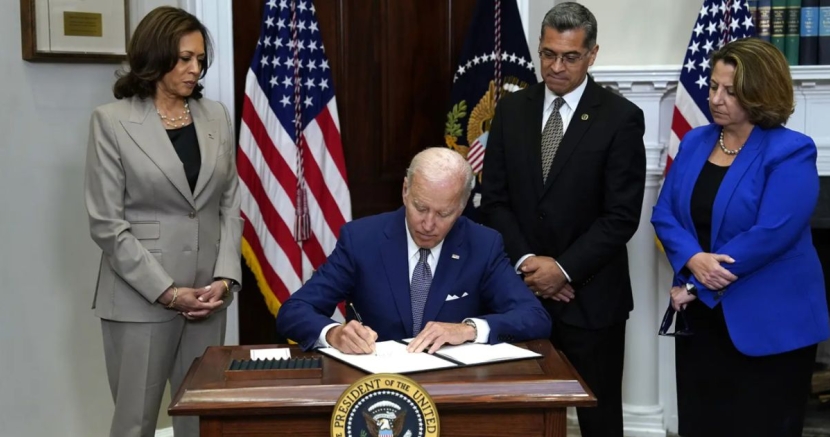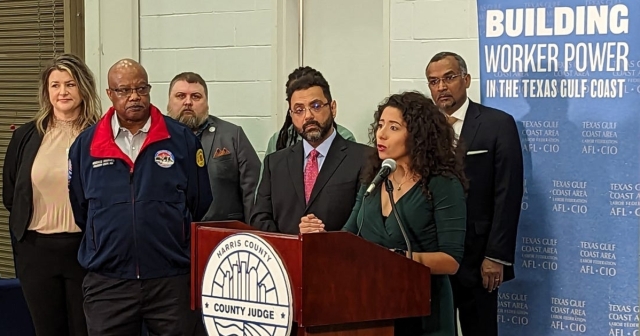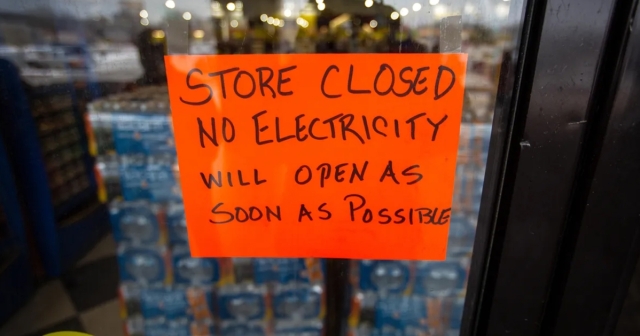A breakdown of Biden’s executive action on reproductive health

Toplines and Key Facts:
- Biden signed an executive order aiming to expand access to abortion pills and contraception and ramp up legal assistance for those obtaining or assisting with an abortion.
- While a necessary step in advancing reproductive healthcare, the order does little to help those in states with near-total abortion bans, like Texas.
- Emergency abortion is protected under federal law but the definition of “emergency” is left up to interpretation.
- Biden’s order should be considered the first step; we need comprehensive federal action now.
Last week, President Biden signed an Executive Order on Protecting Access to Reproductive Healthcare Services, aiming to expand access to abortion pills, increase birth control coverage, and ramp up legal assistance for those obtaining or assisting with an abortion.
Here’s an overview of what’s included in the order:
- Calls on the U.S. Department of Health and Human Services (HHS) to do three things:
- Protect and expand access to abortion care, medication abortion, contraception, and other reproductive health services.
- Launch a public awareness initiative to provide timely and accurate information about abortion (ReproductiveRights.gov).
- Clarify that emergency abortion care is our legal right under the Emergency Medical Treatment and Labor Act.
- Requests the Attorney General and the Counsel to the President convene a meeting of attorneys and organizations to provide legal assistance to people lawfully seeking abortion services throughout the country.
- Asks the Attorney General and the Secretary of Homeland Security to address potential heightened safety and security risks related to abortion care by ensuring the safety of patients, providers, third parties, clinics, and pharmacies involved.
- Urges and Federal Trade Commission (FTC) and the HHS to protect consumer and patient privacy, especially as technology makes people’s health data more accessible.
While Biden’s action was a necessary step in advancing reproductive healthcare, it does little to help those in states with near-total abortion bans, like Texas. Our access to birth control might get better and our patient and consumer privacy might improve, but abortion will still become illegal in Texas.
The silver lining? Biden and the HHS have made it clear that federal law preempts any state law restricting access to abortion in emergency situations. That means providers can feel more secure when offering legally mandated, life- or health-saving abortion services in emergencies.
In Texas, that clarification may not help as much as we’d like. The ban currently in place in our state already offers an exception for abortion in life-threatening situations. The main issue has been interpreting what passes as “life-threatening.” Abortion restrictions have created an “impossible choice” for doctors providing care. Rather than terminating a pregnancy when the patient deems it best, doctors must wait until the patient nears death, lest they face legal challenges.
Biden’s order might better protect doctors but, without total assurance, such as a federal law legalizing abortion, Texas providers will be forced to continue balancing legal and ethical obligations.
To be clear, abortion is safe, necessary, and should be available to all people, regardless of zip code, age, income, race, or health situation. Protecting emergency abortion is below the bare minimum.
A year ago, abortion was legal up to 20 weeks in Texas. With the ceaseless whirlwind of legislation and lawsuits, the past year has brought, abortion law in Texas has become difficult to follow.
Let’s review where Texas law on abortion stands right now:
Last Summer, Gov. Greg Abbott and the Texas Legislature passed SB 8, outlawing abortion after six weeks of pregnancy. At the time, it was one of the most restrictive abortion laws in the nation. Other states quickly followed suit.
During that same period, Texas restricted access to abortion medications and passed the abortion “trigger law,” which would outlaw abortion from the moment of fertilization if Roe v. Wade was ever overturned.
On June 24, the Supreme Court overturned Roe v. Wade. This set in motion Texas’ abortion trigger law, meaning Texans are weeks away from a total abortion ban if no intervention occurs. For now, the 6-week ban remains in effect.
After seeing the decision, Texas AG Ken Paxton resurfaced a 1925 abortion law that outlawed abortion in Texas. Providers, activists, and attorneys argued the century-old law was repealed when abortion was legalized with the Roe decision in 1973.
Last Friday, the Texas Supreme Court sided with Paxton, allowing the 1925 abortion law to go into effect. The law exposes abortion providers to lawsuits and fines if they continue to perform the procedure but stops short of criminal enforcement (for now).
That same day, Biden signed his Executive Order on Protecting Access to Reproductive Healthcare Services.
Yesterday, Paxton filed a lawsuit against the Biden administration over their guidance guaranteeing a right to emergency abortion. He claims it “violates the state’s ‘sovereign interest in the power to create and enforce a legal code.’”
Far-right representatives have tried to frame Biden’s executive order as extremist, but that couldn’t be farther from the truth. Biden’s action does nothing to override state law, doesn’t legalize abortion, and is far from what we’ve all been begging for.
If anything, the action should be considered a first step. Until Texans are guaranteed access to abortion at whatever time they deem personally necessary, our bodies and our futures are not in our control.
We need comprehensive federal action now. Congress and the Biden Administration must treat abortion bans as the threat they are before more Texans are subjected to forced births or dangerous pregnancies.
Over the weekend, Progress Texas joined more than 50 Texas Democrats and abortion rights groups, including former State Senator Wendy Davis, in a letter on urging President Joe Biden to safeguard abortion access for Texans seeking care in and out of the state. The letter outlines five steps the Biden Administration can take right now. The proposals include:
1. Declare a public health emergency protecting private providers who dispense medication abortion via telehealth.
2. Support mission-driven telehealth providers and abortion funds across America.
3. Establish a Federal program for providers to dispense medication abortion.
4. Invoke the Federal Government’s supremacy over state abortion laws that conflict with FDA-approved pharmaceutical regimens and regulations.
5. Protect third parties within and outside the state of Texas from threat of civil and criminal actions where self-sourcing of abortion medications are used.
“Each day that the women of Texas are denied access to bodily autonomy represents a betrayal of our collective obligation to them and a danger to their health and well-being. They deserve the most aggressive, strategic fight possible and to know that we will use every tool at our disposal in service to their right to make decisions about their own bodies,” said Wendy Davis, former state senator and founder of Deeds Not Words and Defend the Frontline. “This is a fight for a woman’s fundamental right to live a full and equal life, plain and simple.”
To every leader, both elected and running, the future of Texas, of our entire nation, depends on you. The longer you wait to act, the more Texans are left without critical reproductive healthcare. Declare a public health emergency; fight to codify the right to abortion; go to hell and back for the people you claim to represent.
Abortion is healthcare. Abortion is freedom. Abortion is a human right.
Abortion supporters are the majority — together, we have the strength to form a massive political resistance. Here are things you can do right now:
1) Join the ROEvolution at roevolution.org
2) Get involved with progressive organizations
3) If you can, donate to organizations and candidates who fight for abortion justice day and night.
For more educational, financial, and legal information on abortion, check out our ROEvolution resource guide.
DONATE
Your donation supports our media and helps us keep it free of ads and paywalls.








